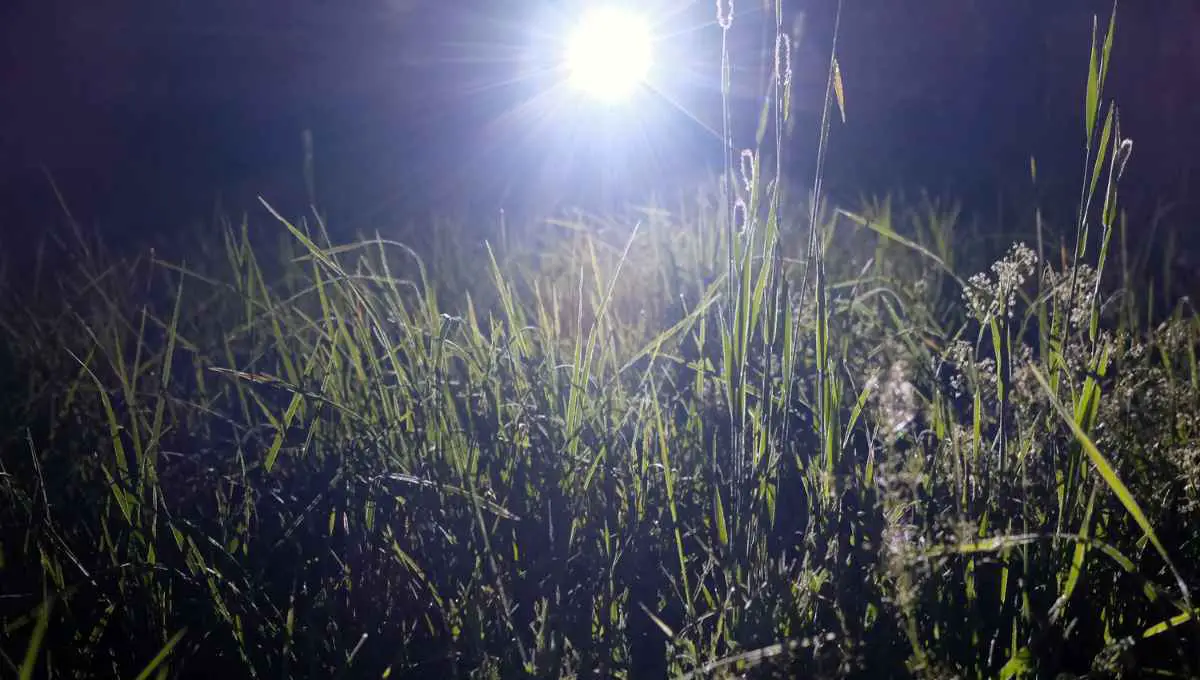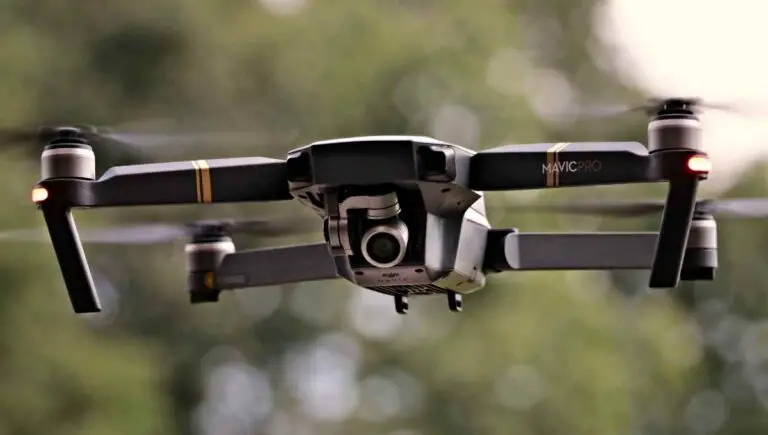Is It Illegal to Shine a Light at Someone’s House? (The Law)

Shining a light into someone’s home without their consent can be a cause for concern and raise questions about its legality. Understanding the law surrounding this behavior is important in order to ensure that one’s actions are within the bounds of the law.
Deliberately shining a light towards or into a neighbor’s home can be classified as a nuisance and may result in light pollution charges if the homeowner asks for the light to be moved and the request goes unheeded.
However, most light pollution is unintentional. You can often avoid charges by simply removing the offending light or adjusting it, so it’s no longer annoying the neighbors. Let’s talk about other options to keep your yard safe overnight while still being a good neighbor.
This post contains affiliate links from Amazon and other stores. This means Yard Blogger may earn a commission if you make a purchase using any of our links. Please refer to our full affiliate disclosure policy for full details.
Here’s a Quick Pro Tip!
Instead of installing extra bright lights, which may shine into the neighbor’s windows, consider one of these other security options to keep you safe and pacify the neighbors:
1. Directed Motion Lights – Add motion lights outside your garage or patio. You’ll be able to see if someone comes close to the house. Just point them away from the neighbor’s windows.
2. Security System – Having a system that notifies you of movement is actually better than just having lights. This system will alert you to movement and allow you to contact the police whether you’re home or not.
3. Light Timers – If you must have lights on, consider using a timer so the lights don’t stay on all night.
Being a Considerate Neighbor
Let’s face it; sometimes, it’s annoying having neighbors. If I had my choice, I wouldn’t live anywhere close to another human being. Nothing is more annoying to me than being able to hear people outside while I’m trying to watch a movie, you know what I mean?
However, despite how inconvenienced I feel about having neighbors, that doesn’t mean I can do whatever I want and ignore their feelings. After all, I wouldn’t blare loud music all night knowing they’re sleeping, so I also want to temper my outdoor lights so they don’t shine into someone else’s home.
That leads me to wonder, how bright can my outdoor lights be? After all, I want to be able to see into my yard, but I don’t want my neighbors to file a complaint against me. So there has to be a happy medium somewhere, right?
It’s All in the Lumens
Lights can be anywhere from 12 to over 1,000 lumens. A lumen is a unit of measurement for light. To get technical, a lumen is defined as “a measure of the total quality of visible light emitted by a source per unit of time.
Essentially, a lumen is just a way to measure how much light is emitted at once from a light source. Therefore, a light that emits 12 lumens is considerably dimmer than one that emits 1,000 lumens.
Just because lights go up to 1,000 lumens doesn’t mean that’s necessary, however. In most cases, the brightest lights you’ll need will be about 500 lumens or 40 watts for an incandescent bulb and only about 8 watts for an LED bulb!
Types of Light Bulbs and Where They Belong
So, we’ve learned from talking about lumens that the wattage and lumen amount matter. You can install LEDs that will illuminate your yard if necessary for overnight outdoor lights, but you don’t have to annoy the neighbors.
If you are looking to illuminate your yard, follow this simple outline for how bright your different lights should be:
- Garden and Shrub Lights – 50 lumens.
- Pond/Pool Lights – 400 lumens or less.
- Floodlights – 900 lumen max.
- Sidewalk/Path Lighting – 150 lumen.
- Steps/Patio Entry Lighting – 100 lumen or less (50 minimum.)
- Garage Motion Lights – 500 lumen.
Following these suggestions, you should be able to comfortably keep your backyard lit without blinding your neighbors. For even further protection against annoying the neighbors, consider using dimmable lights, so you can control how bright they are shining outside.
Keeping the Lights Moderate
While everyone has the right to keep their property illuminated at night, that doesn’t mean you get free rein to have spotlights shining over your yard and into your neighbor’s home. For them, having those lights shining on them may make them feel like you don’t trust them.
It can also cause your neighbors to complain. While they should first try to talk to you about your bright lights, they have every right to file a complaint against you for light trespass. While it can be hard to get those charges to stick, it is possible.
If you want to keep your property illuminated at night, make sure that the light isn’t spilling over to your neighbor’s yard. Failure to do so may cause your neighbor to start recording your yard to prove that your lights are a nuisance.
Consider Motion Activated Light Overnight
Many people want to have lights on all night in their backyard because they think it makes their yard safer. Unfortunately, this isn’t necessarily true. Additionally, it can really annoy the neighbors if they feel like they have a spotlight shining on them at night.
You may not have even thought about the neighbors when you installed your outdoor lights, but that doesn’t mean they won’t feel slighted by them. One way to combat this is by having motion-activated lights in your yard instead.
Pros of Using Motion Lights
Using motion-activated lights means that most of the time, your yard will remain dark. However, as soon as something (even an animal) moves around on your property, the lights will come on, alerting you to a potential issue and hopefully scaring away whatever is in your yard.
Motion lights are also great if you work the second shift, or any other odd schedule, as the lights will come on when you pull into your driveway and keep the way lit while you get inside, without you having to keep the lights on the whole time you’re away.
This way, you save on your electricity bill, it’s better for the environment, and you avoid annoying your neighbors, all in one little motion-activated light!
Safety Concerns
Many people assume having lights on keeps them safe, but does keeping my property lit really keep it safer? The answer is not always. If your home is secluded, adding lights to the property might not be as effective as you thought because if no one is around to witness the crime, the criminals won’t care about the light.
If someone knows your routine well enough to know that you’re not home at certain times, motion-activated lights, or even keeping the lights on all night, it isn’t going to be enough to deter them. So, you may want to consider adding a security system instead.
Is a Security System Better Than Lights?
Adding a security system that alerts you to movement in your home and yard can provide more protection than leaving the lights on while you’re away or even just leaving them on overnight while you sleep.
Consider adding some signage to warn potential intruders they are on camera, some locks for your windows, and a secure door lock, and you can sleep peacefully, knowing there is no way for someone to enter unannounced.
Stay On Your Neighbors Good Side
If you are thinking about keeping lights on overnight in order to deter crime, you may want to reconsider. Instead, talk to your neighbors about your concerns. Knowing your neighbors can actually go a long way toward preventing crime.
If you have a good relationship with your neighbors, you can count on them to watch out for your property when you’re not home. For example, if you go on vacation, you can let them know in advance and ask them to look out for anything unusual.
In addition to asking your neighbors to look out for your home, consider adding some timers (let your neighbors know you’re going to do so!)
Timers can help mimic you being home by turning your lights and TV off and on at the same time you normally would do so, therefore fooling anyone monitoring your home into assuming you’re around.
You might also enjoy our post on Can My Neighbor Block My View?
Final Thoughts
So, all in all, it’s probably best that you reconsider using ultra-bright lights as your security overnight. Not only is it not the best option to keep you and your things safe, but it is likely to irk the neighbors if they feel watched or spotlighted.
While it’s not exactly illegal to shine lights toward your neighbor’s home, if they can prove you’re doing it intentionally, or if it affects them enough to contact authorities, you may find yourself in hot water!
Instead, consider installing a security system or using timed or motion-activated lights that don’t point toward your neighbor’s windows. It’ll save you money, and your neighbors will appreciate it!











